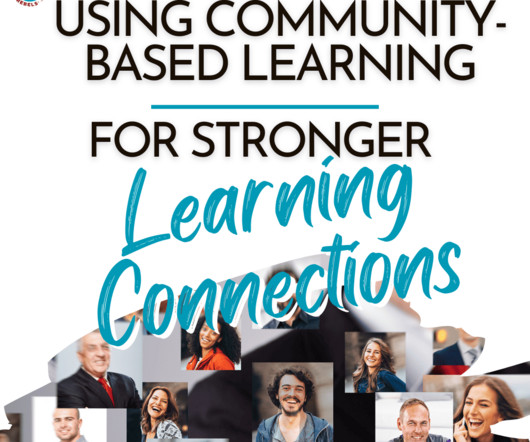HOW WE BUILD PASSIVE LEARNING CULTURES
Learnnovators
MAY 17, 2022
An active, intellectually engaged culture matters because it contributes directly to the bottom-line, to expertise generated within the organization, to value created for employees and stakeholders alike, as well as to creativity, innovation and research, to name just a few areas of benefit. Principal Learning Consultant @ Learnnovators.








































Let's personalize your content